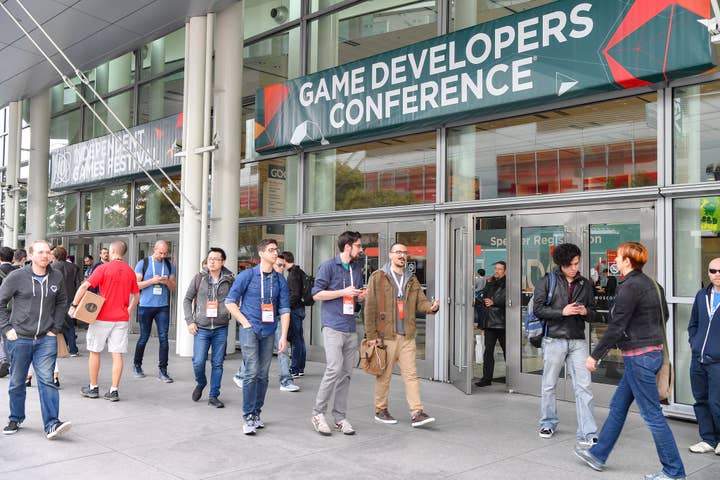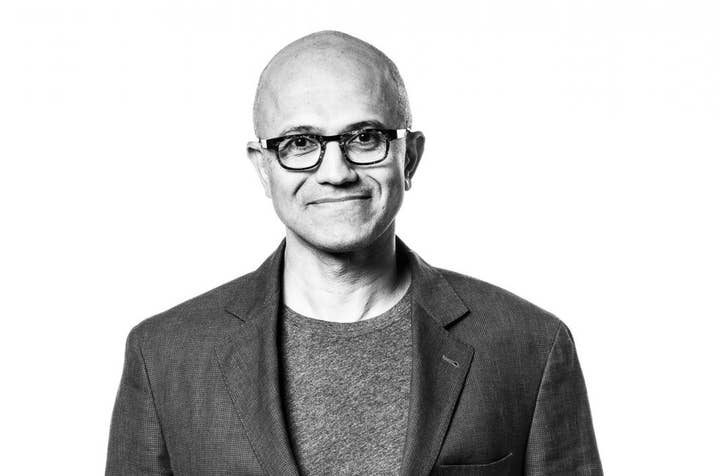Don't expect huge change in the post-COVID industry | Opinion
Expectations of radical change in the wake of the pandemic are overblown -- in-person working will remain the default paradigm
One of the most common early reactions to the huge disruption wrought by the COVID-19 pandemic was a strong bias towards mean reversion -- a belief, or assumption, that this situation would have an endpoint after which everything would return to normal, exactly as it had been before.
We're some way past that part of the reaction now. There's a growing acceptance that a return to normality will not only be slow but will be to a "new" normality that's not entirely like the world that came before. Yet in some regards, the pendulum has also swung too hard in the opposite direction. We've gone from a faith in mean reversion to a fervent belief in paradigm shift -- a sense that after COVID-19, nothing will be the same again.
This sense manifests in all sorts of different ways, but in terms of the games industry and a great many others, it is perhaps most powerfully evident in the conviction that many people seem to feel that the teleworking companies have been forced into is set to become a fixed norm, while the industry's business travel and major in-person events have now been consigned forever to the dustbin of history. The future ideal being pitched here is one where a huge swathe of the industry works remotely pretty much all the time, while big events -- both trade- and consumer-focused -- are conducted online. In recent weeks I've heard blue-sky discussions about running full-scale development studios with no office space, and seen musing about how video streaming technology has invalidated all need for physical conferences or extensive business travel.
The future ideal being pitched is one where a huge swathe of the industry works remotely pretty much all the time
It was a little refreshing, then, to see Microsoft CEO Satya Nadella -- arguably one of the most grounded and realistic people working in the tech industry today -- pour a little cold water on some of the more outlandish visions of a post-COVID world. Despite the fact that Microsoft operates a popular cloud platform and a suite of remote work collaboration tools, Nadella isn't sold on the idea of remote work becoming the dominant paradigm in the long term -- and while he's talking about work more generally, his words make a huge amount of sense in the context of the games industry's specific needs.
Certainly, the pandemic has forced companies to accept the possibility of teleworking, and to some degree that has probably overcome some illogical resistance to the idea, forcing managers to accept that it can be an effective approach. A large number of companies and teams are trying large-scale remote working for the first time and discovering that they can make progress on their projects, and it's not unreasonable to expect that some of them will provide additional flexibility to their employees to telework in future.
If anything, though, the pandemic has also revealed some pretty serious cliff edges where telework just stops being effective. As weeks and months pass, teams are encountering more and more problems, and while some have adapted better than others, in many cases work schedules are slipping further and further behind.
The pandemic has also revealed some pretty serious cliff edges where telework just stops being effective
There are some functions of having a physical location for a team to work in that simply can't be effectively replicated in teleworking as yet -- VR and AR might change a lot of this, but this would rely on having headsets that are comfortable and healthy to wear for entire working days, which is a far-off goal. These flaws are being sandpapered over to a degree by the aura of "we're all in this together" that's allowing people to gamely brush off frustrations around the endless Zoom meetings and various inconveniences of remote work -- but those frustrations, speed bumps and frictions will come back to the fore as the pandemic abates and teleworking ceases to be a strict requirement.
Other problems haven't been surmountable even given an infinite reservoir of pandemic camaraderie. No amount of willingness to grin and bear it can change the reality of how difficult it is for teams to effectively brainstorm online, or to work on large assets or other tasks involving significant data transfer over a domestic broadband connection. These are two huge considerations for game development, a sector which is really at the sharp end of the possibilities and limitations of telework. For a timely example, consider the sheer size of the raw assets being alluded to in the recent Unreal Engine 5 reveal, and ask yourself how effectively an artist, animator or designer is going to be able to collaborate on assets of that size over a broadband connection that makes every Netflix stream look like The Lego Movie every time the next-door neighbours' teenager opens BitTorrent.
Of course, it goes without saying that small game development teams can and do effectively work online, especially in the indie space. There are any number of beloved indie titles that were developed by people who often weren't even in the same country with one another, let alone the same office. The pace of content creation and iteration on those projects, however, is often orders of magnitude away from what's demanded by modern high-budget game development.
Every additional developer added to a project is effectively another node in an increasingly complex network, increasing the stress on collaboration tools and the potential for team communication to become a development bottleneck in a logarithmic rather than a linear fashion. An enormous amount of development on any large project depends on rapid, collaborative iteration, to which online work can be an immense roadblock.
The conference environment, as a knowledge sharing opportunity for developers, is very difficult to replace
None of this is to say that some of the changes we've been forced into by COVID-19 won't stick, however. Nadella spoke in terms of social capital that companies have built up and are now spending -- essentially arguing that the social "glue" that holds together workplaces and teams is currently being depleted and isn't being built back up, which really implies a limitation on the degree to which this "new" status quo can hold in a post-COVID world -- but there is nothing to say that a standard in-office working week is the only way to restore those reserves of social capital, and some degree of flexibility for staff who need it is likely to be a positive outcome of the pandemic.
However, the extent to which we see major change is likely to be influenced heavily by how much the pandemic actually impacts on studios' and companies' work schedules -- and it's still vastly too early to estimate the final impact on the games industry. Both Microsoft and Sony are bullish in their estimations of how little COVID-19 will impact their software release schedules, but it's worth noting that they both have new consoles to launch this year. Nintendo, which is currently mid-cycle on the Switch, feels like it's being rather more grounded when it admits that its release schedule is currently facing serious challenges due to disruption caused by the virus.
If travelling to the office and gathering together teams in studios is unlikely to fade into the rear-view mirror any time soon, one area where we might see a more profound change is in terms of business travel within the industry. This whole area -- both ongoing business travel and major international conferences and events -- is something that a lot of companies have been considering more and more critically for years. COVID-19 may simply provide a chance for a step-change in a trend that predates the virus by a long time.

There are some things for which face-to-face just can't be effectively replaced, of course, but the pandemic has arguably cemented a sense that a manager swanning into a remote studio for a day or two is performing a far less crucial social capital building function than the team themselves gelling in a shared environment on a daily basis. As for what it means for large-scale travel that's often somewhere on the level of an expensive junket, like E3, it's certainly hard to see that status quo returning without major changes.
This isn't to say, however, that all business travel is going to be off the cards; here too I think there's an overblown expectation for a radically different post-COVID world. A lot of trips are going to be rethought in a general overhaul of many companies' business travel policies, but there are some events and functions where face-to-face serves an equally vital role as it does in the day to day studio environment.
Conferences like GDC or other knowledge-focused events, for example, play a powerful role in terms of industry networking -- not so much at the top level, where today's deals are being done, but down through the ranks of development and publishing, where the relationships upon which tomorrow's deals and opportunities will be founded are being built up. The conference environment itself, as a learning and knowledge sharing opportunity for developers, is very difficult -- if not impossible -- to replace with some kind of online equivalent. The industry would lose a huge amount of value and opportunity if events like GDC and other regional developer conferences were to fall by the wayside, a baby tossed out with the bathwater of excessive business travel in a post-COVID order.
The industry after COVID-19 will certainly look different to some degree, but we shouldn't build up expectations for a total shift in working practices and an embrace of teleworking and virtual events as being the default. We've yet to properly measure the impact of this situation on the industry's ability to function; I know it feels like we've been doing this for about a decade, but it's only been a couple of months -- that sensation alone probably tells you something about how much the actual office environment and human contact with colleagues actually means -- and it's impossible to make a full assessment of how effectively studios and teams have been working just yet.
Moreover, for every person waxing lyrical about the potential that's been unveiled for a new kind of working, there are probably several for whom this new situation has been far from ideal. Don't be too surprised, or too disappointed, when the future ends up looking pretty familiar after all.


